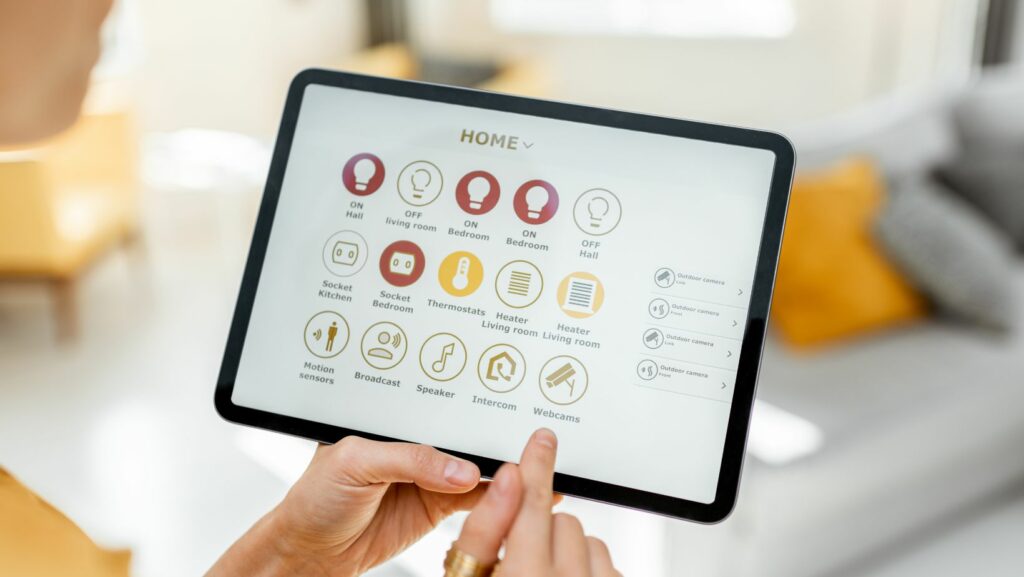Smart devices are becoming increasingly common in households, extending far beyond the familiar smart speakers and televisions. These interconnected gadgets are quietly reshaping daily routines, offering new levels of convenience, security, and efficiency. From automating simple tasks to providing detailed insights into personal health, this technology is changing how people interact with their homes and manage their lives.
The growth of connected technology means that devices can now communicate with each other, creating a more responsive and automated living environment. This integration allows for the management of lighting, heating, and security through a smartphone or voice commands, simplifying many aspects of home management. As these devices become more accessible, their presence is shifting from a novelty to a standard feature in modern homes.
Greater Comfort And Efficiency At Home
One of the most immediate changes brought by smart devices is in home comfort and energy management. Smart thermostats, for example, can learn a household’s schedule and adjust heating and cooling accordingly, which can help reduce energy consumption. These systems can automatically lower the temperature when no one is home and warm it up just before you return, balancing comfort with efficiency.
Smart lighting offers similar benefits. Lights can be programmed to turn on or off at specific times, or even adjust their brightness based on the time of day. Some systems can be controlled remotely, meaning you can check if you have left any lights on after leaving the house. Smart plugs can also turn conventional appliances into smart ones, allowing you to control them from your phone and manage their energy use.
A New Approach To Health And Wellness
Smart technology is also creating new opportunities for monitoring personal health from home. Wearable devices like smartwatches and rings can track activity levels, heart rate, and sleep patterns, providing a detailed overview of your general wellness. Some devices are designed specifically to improve sleep by monitoring sleep cycles and providing insights into what might be causing disturbances.

Beyond general fitness, some smart devices are designed for more specific health purposes. There are smart scales that can measure body composition metrics like body fat and muscle mass, helping to track fitness progress more accurately. Other devices include smart pill dispensers that provide reminders for taking medication and smart air quality monitors that check for pollutants and humidity inside the home. This technology offers a way to be more proactive about personal health management.
Improving Safety And Security
Smart devices are significantly enhancing home security. Video doorbells, smart locks, and security cameras allow homeowners to monitor their property remotely. You can see who is at your door, receive alerts about unexpected activity, and even lock or unlock your door from anywhere using a smartphone.
These systems can also provide a greater sense of security when you are away. For instance, you can program lights to turn on and off at intervals to simulate occupancy. An Garda Síochána home security advice supports this. Some devices go beyond preventing break-ins. Smart smoke and carbon monoxide detectors can send an alert to your phone if they are triggered, and smart water leak sensors can notify you of a potential flood, allowing you to act quickly.
Imagine being on holiday and receiving a notification that a leak sensor in your bathroom has detected water. Using a smart water valve, you could shut off the main water supply remotely to prevent significant damage. This ability to mitigate a potential disaster can be a factor when it comes to making an insurance claim, as it demonstrates proactive steps were taken to limit the extent of the damage.
A More Connected And Responsive Home
The integration of smart technology is making homes more responsive to the needs of those who live in them. Devices can work together to automate routines, such as turning on the lights and adjusting the thermostat when you arrive home. This level of automation helps to streamline daily life and free up time from small, repetitive tasks.
As this technology continues to develop, it is becoming more integrated into the fabric of daily life. The ability to control and monitor different aspects of your home remotely offers convenience and peace of mind. Understanding the full impact of smart devices is becoming increasingly important as they become a more standard part of managing a modern household.

